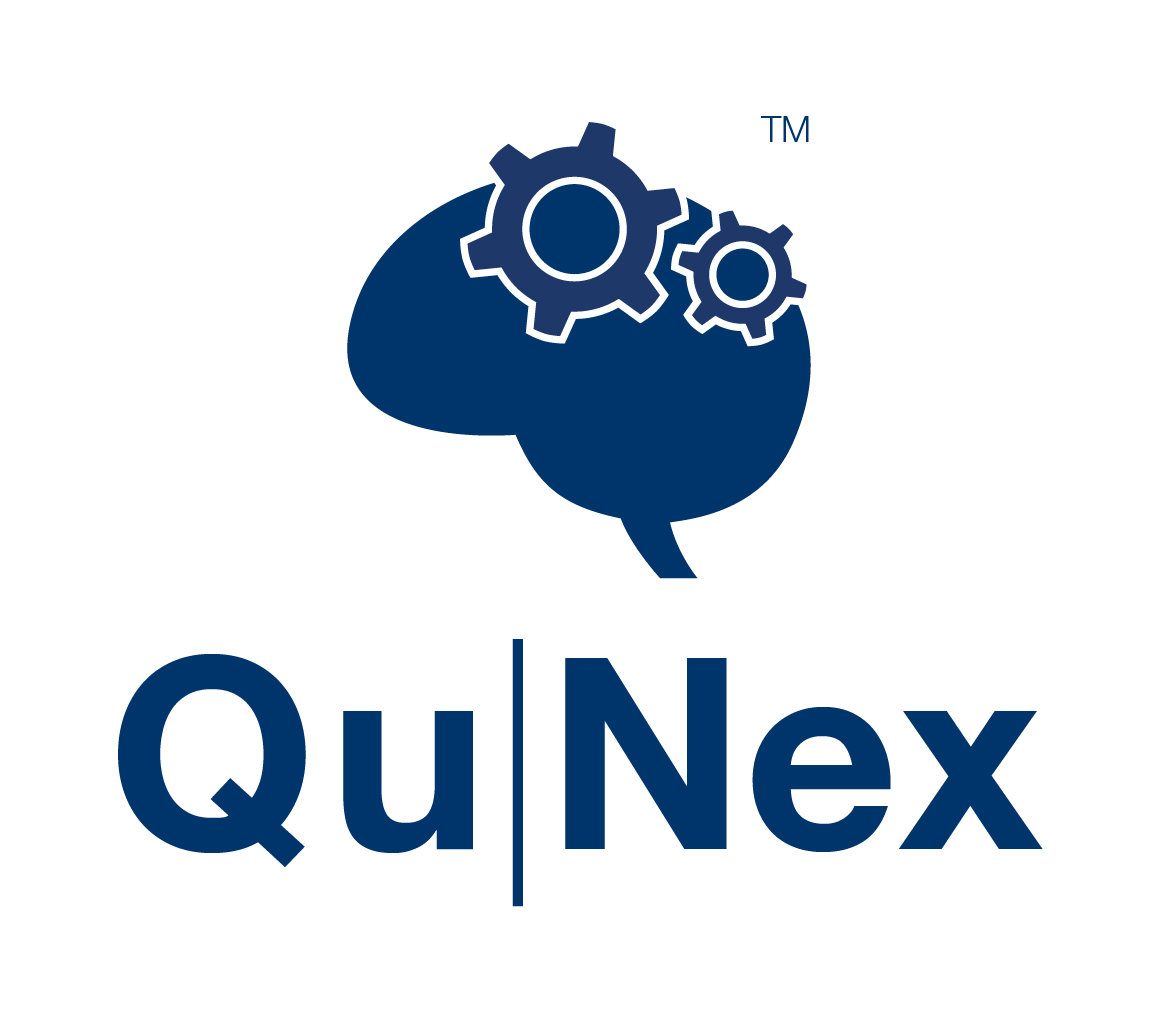Installing from source and dependencies
Contents
Installing from source and dependencies#
Installation of source code#
Step 1: Clone all QuNex repositories and initiate submodules:
Clone:
git clone https://gitlab.qunex.yale.edu/qunex/qunex.gitInitiate submodules from inside cloned repository folder:
git submodule initPull and update all submodules:
git pull --recurse-submodules && git submodule update --recursiveUpdate submodules to the latest commit on origin:
git submodule foreach git pull origin masterSwitch all submodules to the master branch:
git submodule foreach git checkout master
Step 2: Configure your OS environment. Set the environmental variables TOOLS and QUNEXREPO. For example, if QuNex is located at /qunex_suite/qunex, set TOOLS=/qunex_suite/ and QUNEXREPO=qunex. The easiest way to do this is by adding the following lines to your .bash_profile:
TOOLS=<path to the root of where the software is installed>
QUNEXREPO=<relative path to the QuNex folder within $TOOLS, e.g. 'qunex'>
export TOOLS QUNEXREPO
Step 3: Install all necessary external dependencies:
Connectome Workbench (v1.4.2 or above; https://www.humanconnectome.org/software/connectome-workbench)
FSL (v6.0.5 or above with GPU-enabled DWI tools; https://fsl.fmrib.ox.ac.uk/fsl/fslwiki)
FreeSurfer (v6.0.0; http://ftp.nmr.mgh.harvard.edu/pub/dist/freesurfer/6.0.0/)
MATLAB (vR2017b or above with Signal Processing, Statistics and Machine Learning and Image Processing Toolbox; https://www.mathworks.com/downloads/)
or GNU Octave (v4.4.1 or above with Image 2.6.2, Control 3.1.0, Signal 1.3.2, Statistics 1.3.0 and nan 3.1.4 packages; https://www.gnu.org/software/octave/download.html)
PALM: Permutation Analysis of Linear Models (https://github.com/andersonwinkler/PALM)
Python (v3.7 or above with numpy, scipy, nibabel matplotlib, seaborn, PyPDF2, pydicom; https://www.python.org/downloads/)
Human Connectome Pipelines (https://github.com/Washington-University/HCPpipelines)
Gradunwarp for HCP Pipelines (https://github.com/Washington-University/gradunwarp)
HCP ASL Pipelines (https://github.com/physimals/hcp-asl)
R Statistical Environment with ggplot2 and filelock library (https://www.r-project.org/)
dcm2niix (23-June-2017 release; https://github.com/rordenlab/dcm2niix)
dicm2nii (version 2018.08.08; https://github.com/xiangruili/dicm2nii)
pydicom (v1.1.0 or later; https://pydicom.github.io)
Step 4: Source the Qunex environment. The most convenient way is to make the OS automatically source it by adding the following line to .bash_profile:
source $TOOLS/$QUNEXREPO/env/qunex_environment.sh
Step 5: Setup the external dependencies. External tools should be installed inside the $TOOLS folder:
The
qunex_environment.shscript automatically sets assumptions for dependency paths. These can be changed by the user.For more info on how to define specific QuNex dependencies paths run:
qunex --envsetup.
Updating the QuNex Suite from Source#
To update the main QuNex repository and all the submodules run:
git pull
git submodule update --recursive --remote
For this to work you need to have an active git account and read access to the main QuNex repository and all submodules.
QuNex environment setup#
All the listed packages have to be either available on the system level or installed in the TOOLS directory. Please review and edit $TOOLS/$QUNEXREPO/env/qunex_environment.sh to ensure that all the dependencies are configured correctly. Once configured, for a full report of the QuNex Suite installed environment the user can run the following from the command line:
qunex_environment_status
The default locations expected by $TOOLS/$QUNEXREPO/env/qunex_environment.sh are listed below. A user can always change these manually after the environment script is run.
TOOLS --> The base folder for the dependency installation
│
├── qunex --> Env. Variable => QUNEXREPO -- All QuNex Suite repositories (https://gitlab.qunex.yale.edu/qunex)
│
├── env --> conda environments with python packages
│ └── qunex --> Env. Variable => QUNEXENV
│
├── HCP --> Human Connectome Pipelines Folder (https://github.com/Washington-University/HCPpipelines)
│ ├── HCPpipelines --> Env. Variable => HCPPIPEDIR
│ └── hcp-asl --> HCP ASL pipelines
│
├── dcm2niix --> dcm2niix conversion tool (https://github.com/rordenlab/dcm2niix)
│ └── dcm2niix. --> Env. Variable => DCMNIIDIR
│
├── dicm2nii --> dicm2nii conversion tool (https://github.com/xiangruili/dicm2nii)
│ └── dicm2nii. --> Env. Variable => DICMNIIDIR
│
├── freesurfer --> FreeSurfer (http://ftp.nmr.mgh.harvard.edu/pub/dist/freesurfer/6.0.0-HCP/)
│ └── freesurfer-<VERSION> --> Env. Variable => FREESURFER_HOME (v6.0 or later stable for all other data)
│
├── fsl --> FSL (v6.0.3 or above with GPU-enabled DWI tools; https://fsl.fmrib.ox.ac.uk/fsl/fslwiki)
│ ├── fsl-<VERSION> --> FSL installation
│ ├── fsl --> Link to FSL installation, env. Variable => FSLDIR
│ └── fix. --> Env. Variable => FSL_FIXDIR (https://fsl.fmrib.ox.ac.uk/fsl/fslwiki/FIX/UserGuide)
│
├── matlab --> MATLAB vR2017b or higher. If MATLAB is installed system-wide then a symlink is created here.
│ ├── matlab-latest --> Env. Variable => MATLABDIR
│ └── matlab-latest/bin --> Env. Variable => MATLABBINDIR
│
├── miniconda --> Env. Variable => CONDADIR, miniconda2 for python environment management (https://conda.io/projects/conda/en/latest/user-guide/install/)
│
├── octave --> Octave v.4.4.1 or higher. If Octave is installed system-wide then a symlink is created here
│ ├── octave-<VERSION> --> Octave installation
│ ├── octave --> Env. Variable => OCTAVEDIR, link to Octave installation
│ ├── octave/bin --> Env. Variable => OCTAVEBINDIR
│ └── octavepkg --> Env. Variable => OCTAVEPKGDIR -- If Octave packages need manual deployment then the installed packages go here.
│
├── palm --> PALM: Permutation Analysis of Linear Models (https://github.com/andersonwinkler/PALM)
│ ├── palm-o --> Env. Variable => PALMDIR (If using Octave)
│ └── palm-m --> Env. Variable => PALMDIR (If using MATLAB)
│
├── R --> R Statistical computing environment
│ └── R-<VERSION> --> Env. Variable => RDIR
│
├── gradunwarp --> HCP version of gradunwarp (https://github.com/Washington-University/gradunwarp)
│ ├── gradunwarp-<VERSION> --> Gradunwarp installation
│ └── gradunwarp --> Env. Variable => GRADUNWARPDIR, link to granduwarp installation
│
└── workbench/workbench-<VERSION> --> Connectome Workbench (v1.0 or above; https://www.humanconnectome.org/software/connectome-workbench)
└── workbench-<VERSION> --> Workbench installation
└── workbench --> Env. Variable = HCPWBDIR, link to Workbench installation
These defaults can be redefined if the above paths are declared as global variables in the .bash_profile profile after loading the QuNex environment.
Additional installation notes#
For the tools that require compilation and/or installation, make sure that you download them to the temporary folder and then install them
in the correct location. E.g. gradunwarp would be installed by:
cd $TMP
git clone https://github.com/Washington-University/gradunwarp.git
cd gradunwarp
python setup.py install --prefix=$TOOLS/pylib/gradunwarp

